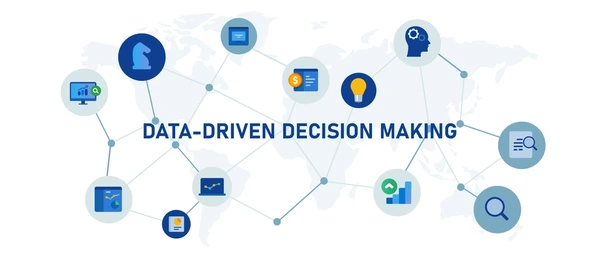In the fast-paced world of call centers, where every interaction matters, the ability to make informed decisions is paramount. Enter the era of data-driven decision-making, a game-changer that leverages analytics to optimize performance, enhance customer experiences, and drive overall efficiency.
- The Role of Analytics in Call Centers: Unveiling Insights
Data analytics serves as the lens through which call center managers gain profound insights into operations. By harnessing the power of data, organizations can move beyond anecdotal observations and make decisions grounded in real-time performance metrics.
- Optimizing Call Center Processes: Efficiency at Its Core
The heart of data-driven decision-making lies in optimizing call center processes. Analytics enable a granular examination of workflows, helping identify bottlenecks, streamline operations, and allocate resources more effectively. From call routing to agent scheduling, every facet of the call center ecosystem can be fine-tuned for peak efficiency.
- Enhancing Customer Interactions: Personalization through Data
One-size-fits-all approaches are becoming obsolete in customer service. Data-driven decision-making enables call centers to offer personalized interactions by understanding customer preferences, history, and behaviors. Agents armed with relevant information can provide tailored solutions, resulting in a more satisfying customer experience.
- Forecasting and Resource Planning: Meeting Demand Proactively
In the dynamic world of call centers, predicting call volumes and planning resources efficiently is a constant challenge. With predictive analytics, call centers can anticipate peak periods, plan staffing levels accordingly, and ensure that customer service remains top-notch even during high-demand periods.
- Quality Assurance: Monitoring and Improving Agent Performance
Data-driven insights extend to agent performance. By monitoring key performance indicators (KPIs) such as call resolution times, customer satisfaction scores, and adherence to scripts, call center managers can identify areas for improvement, offer targeted training, and cultivate a high-performance culture among agents.
- Real-Time Decision Making: Agility in Action
In an era where responsiveness is key, real-time data analytics empowers call centers to make on-the-fly decisions. Whether it’s adjusting staffing levels to meet sudden spikes in demand or addressing emerging customer trends, the ability to act swiftly based on real-time data is a competitive advantage in the call center landscape.
- Measuring Customer Satisfaction: The Ultimate Metric
The success of a call center ultimately rests on customer satisfaction. Data-driven decision-making allows organizations to measure and analyze customer feedback comprehensively. By understanding the factors influencing satisfaction, call centers can implement targeted improvements that resonate with their client base.





3 Comments
Great information!!! Thanks for your wonderful informative blog.
Dear Raghunandan D,
Thanks for your comment.
Beautiful insight Information.